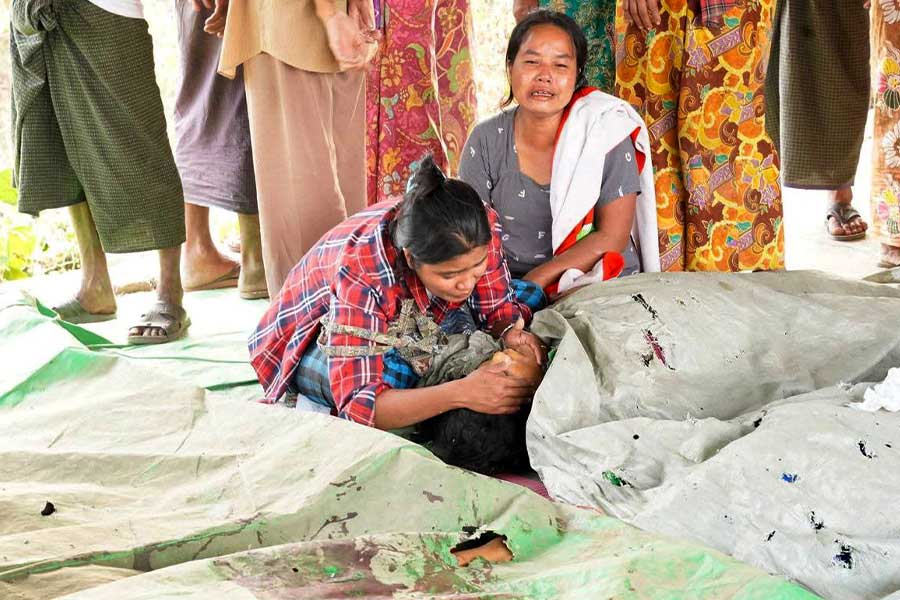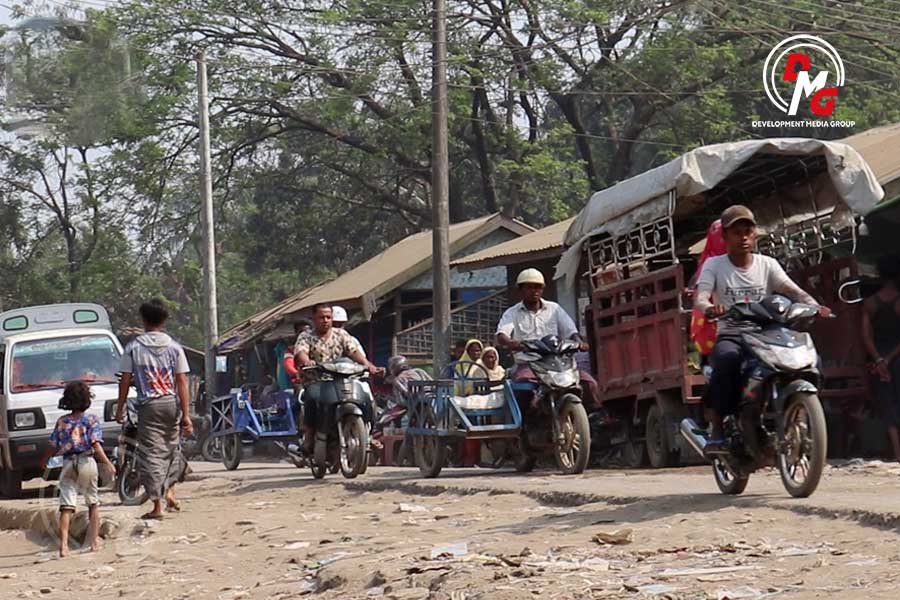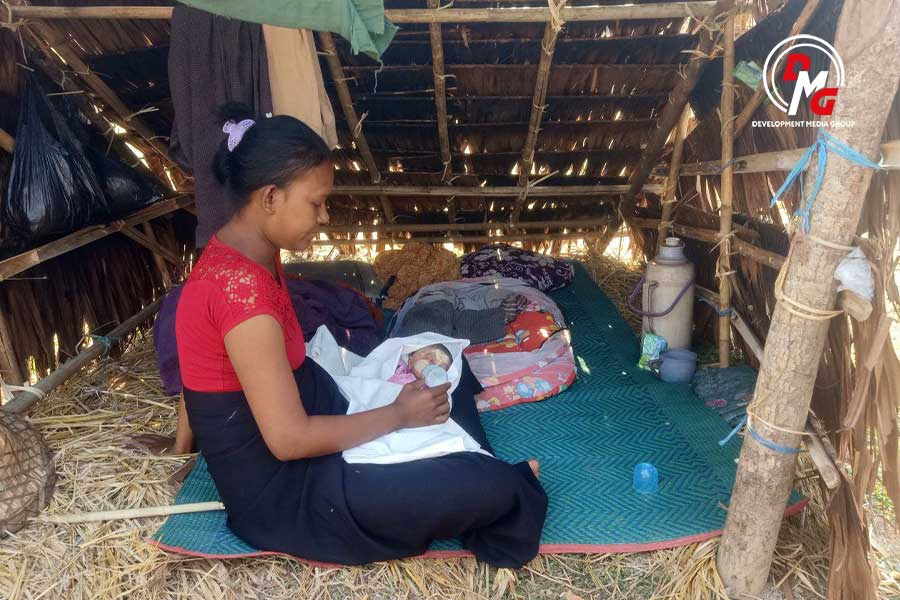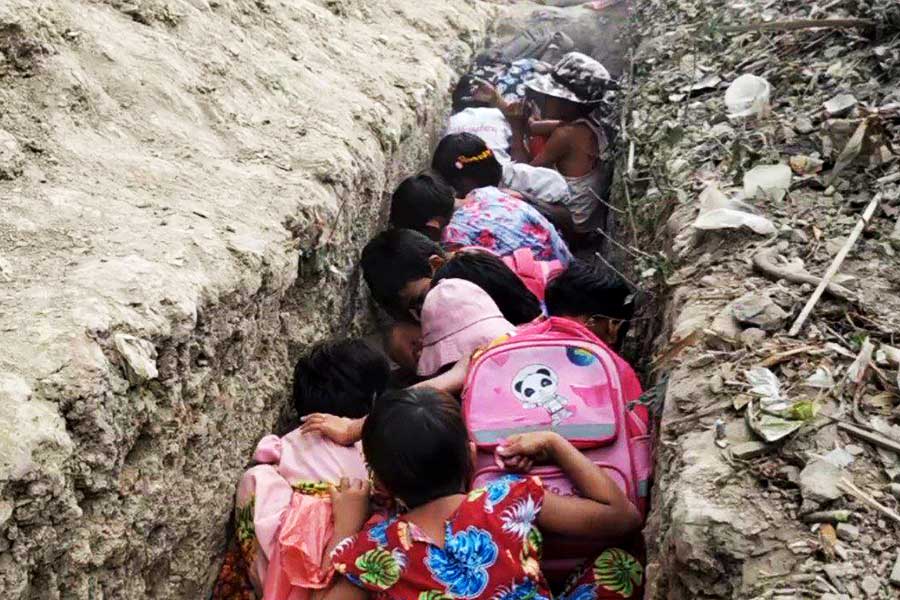- Arakan residents call for air raid warning systems amid surge in junta airstrikes
- Arakan’s Breathing Space (or) Mizoram–Arakan Trade and Business
- Death toll rises to 18 after junta airstrike on Ponnagyun village market
- Regime arrests dozens of Muslims in Sittwe over alleged Arakan Army links
- Over 200 IDPs in Ponnagyun struggle without shelter, food aid
Arakanese traditional weaving businesses suffer from fighting
The traditional weaving industry is among businesses plagued by the latest fighting in Arakan State. Large- and small-scale weaving business owners as well as those employed as weavers are struggling.
09 Aug 2024

DMG Newsroom
9 August 2024, Sittwe
The traditional weaving industry is among businesses plagued by the latest fighting in Arakan State. Large- and small-scale weaving business owners as well as those employed as weavers are struggling.
Sittwe, Kyauktaw, Mrauk-U and Thandwe townships are heartlands of traditional weaving businesses in Arakan State.
In Warr Bo Village, Sittwe Township, the majority of residents weave clothes for a living, but all the villagers have fled to various places due to military tensions in the area.
Daw Ma Tin Thein from Warr Bo Village said: “Weaving is the primary source of livelihood in our village. But all the villagers have fled. So, we have lost our livelihoods.”
Previously, products of the traditional weaving industry in Arakan State were distributed to markets inside and outside the country.
While the fighting has seriously disrupted the transportation of raw materials, power cuts have also inhibited production. Additionally, domestic demand has been almost nonexistent due to the instability in the country.
In Thandwe, which is home to Myanmar’s premier beach destination Ngapali, traditional weaving products were popular with foreign tourists and holidaymakers from other parts of the country. But local weavers have also been forced to flee Thandwe following fighting there between the regime and the Arakkha Army (AA).
“Operations were halted since the fighting broke out in Thandwe. Weavers are now taking shelter in different places and are jobless,” said a Thandwe resident.
While the weaving businesses were in operation, employees earned between 15,000 and 20,000 kyats a day.
A piece of traditional woven cloth sold for a minimum 15,000 kyats to upwards of hundreds of thousands of kyats.
“The traditional weaving industry is a part of our culture. We can resume the business at any time when stability is restored. We are not concerned that the industry will vanish,” said Daw Ma Aye, owner of the Shwe Kyar weaving business in Sittwe Township.
The Shwe Kyar weaving workshop, which previously operated more than 120 looms, has been forced to suspend operations due to the fighting.

















.jpg)